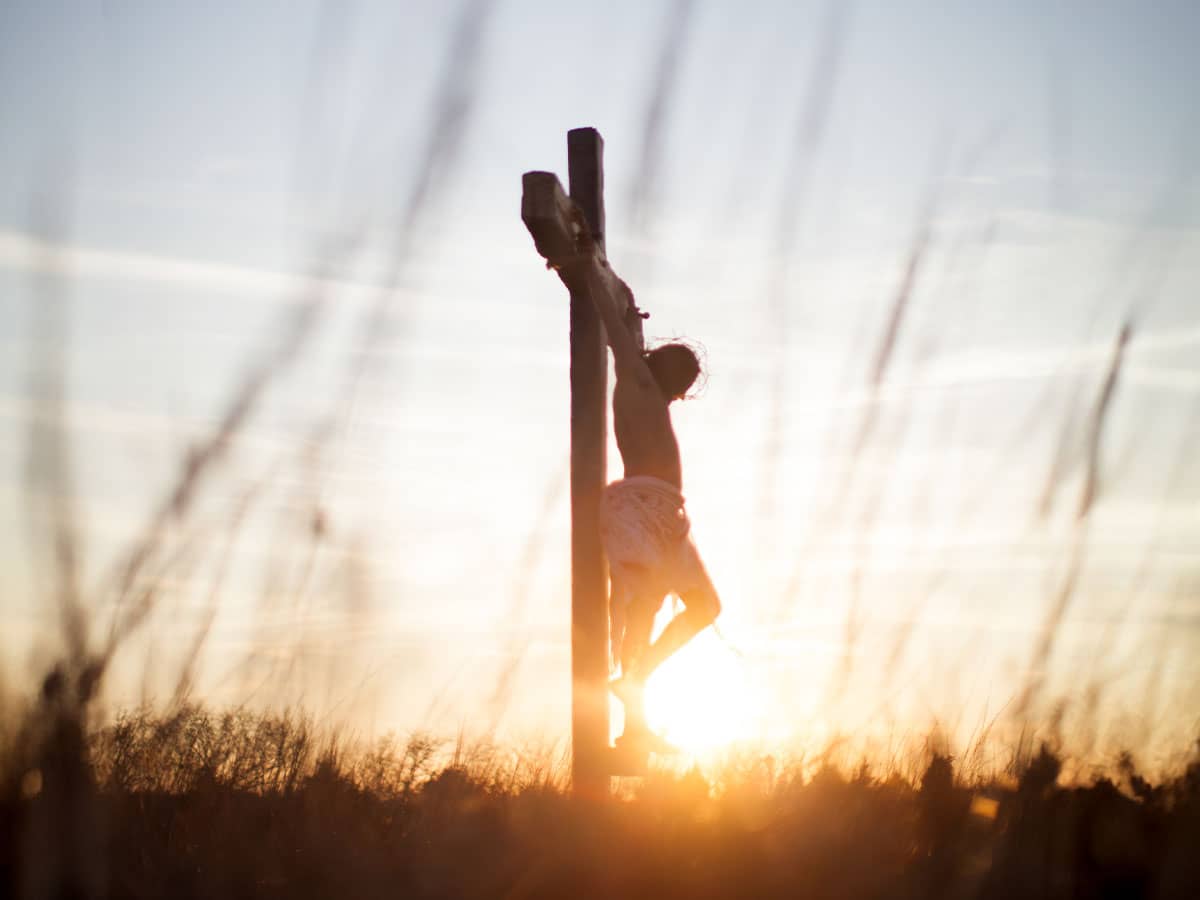
Many people hear the words “on the night He was betrayed” during church service or Mass. That night was Maundy Thursday and it was one of the most important nights in all of history.
Maundy Thursday, also referred to as Holy Thursday is observed during Holy Week on the Thursday before Easter. Maundy Thursday commemorates the Last Supper when Jesus shared the Passover meal with His disciples on the night before He was crucified.
The word “Maundy” is derived from the Latin word mandatum, or “mandate.” This word is used in the Latin text for John 13:34: “Mandatum novum do vobis ut diligatis invicem sicut dilexi vos” or in English, “A new commandment I give unto you, That ye love one another; as I have loved you.” It is called Maundy Thursday because it was on this day that Christ gave us the new commandment – the new mandate – to love one another as He loves us.
While different denominations observe Maundy Thursday in their own distinct ways, two important biblical events are the primary focus of Maundy Thursday.
The first Bible event is when Jesus washed the disciples feet. Before the Passover meal, Jesus washed the feet of His disciples:
“It was just before the Passover Feast. Jesus knew that the time had come for Him to leave this world to go to the Father. Having loved His own who were in the world, He now showed them the full extent of His love. The evening meal was being served, and the devil had already prompted Judas Iscariot, son of Simon, to betray Jesus.
Jesus knew that the Father had put all things under His power, and that He had come from God and was returning to God; so He got up from the meal, took off His outer clothing, and wrapped a towel around His waist. After that, He powered water into a basin and began to wash His disciples’ feet, drying them with the towel that was wrapped around Him” (John 13:1-5).
This was an incredible act of humility and was so out of the ordinary. It was a reversal of normal roles. It was so out of the ordinary that it stunned the disciples. Bu performing this lowly foot-washing service, Jesus showed the disciples the full extent of His love. He demonstrated how believers are to love one another through sacrificial humble service. This is why many Christian churches practice foot-washing ceremonies as a part of their Maundy-Thursday services.
At the Last Supper, Jesus washed the disciple’ feet, however the disciples did not wash each other’s feet nor did anyone wash Jesus’ feet. Because of this, many pastors choose to wash the feet of the members of the congregation but do not have their feet washed.
The second Bible event is when Jesus instituted communion. During the Passover meal, Jesus took bread and wine and asked His Heavenly Father to bless it:
“He took some bread and gave thanks to God for it. Then He broke it in pieces and gave it to the disciples, saying, ‘This is my body, which is given for you. Do this in remembrance of me.’ After supper He took another cup of wine and said, ‘This cup is the new covenant between God and His people – an agreement confirmed with my blood, which is poured out as a sacrifice for you” (Luke 22:17-20).
This passage describes the Last Supper, which forms the biblical basis for the practice of Communion. Because of this, many churches hold special Communion services as a part of their Maundy Thursday celebrations. Likewise, many congregations observe a traditional Passover Seder meal.
The Passover has great significance not only in the Jewish faith, but also the Christian faith and was a key part of Maundy Thursday. The Jewish Passover commemorates the Israelite liberation from slavery in Egypt as recorded in the book of Exodus. The Lord used Moses to rescue His people from bondage by sending ten plagues to persuade Pharaoh to let the people go. With the final plague, God promised to strike dead every firstborn child in Egypt. To spare His people, He provided instructions to Moses. Each Hebrew family was to take a Passover lamb, slaughter it, and place some of the blood on the door frames of their homes.
When the destroyer passed over Egypt, He would not enter the homes covered by the blood of the Passover lamb. These and other instructions became part of a lasting ordinance from God for the observance of the Passover Feast, so that generations would remember God’s great deliverance. That night, God’s people were delivered from the plague and escaped Egypt in one of the most dramatic miracles of the Old Testament.
On the first Passover, God commanded Israel to always remember His deliverance by sharing in a Passover meal. Jesus transformed the Passover meal on Maundy Thursday when He celebrated the Passover with the apostles. Jesus said, “I have been very eager to ear this Passover meal with you before my suffering begins. For I tell you now that I won’t eat this meal again until its meaning is fulfilled in the Kingdom of God” (Luke 22:15-16). Jesus fulfilled the Passover with his death as the Lamb of God.
While it is not a requirement for Christians to celebrate the Passover, it is beneficial to understand and celebrate the Passover if it leads to a greater understanding and appreciation for the life, death and resurrection of Jesus Christ. Christians who observe the annual memorial marking of Jesus’ death are reminded that eternal life only comes through Him. It is also a great reminder of His deliverance of us from the bondage of sin. Jesus’ sacrifice is the starting point of salvation.
On Maundy Thursday, remember the commands that Jesus gave His disciples at the Last Supper: to love with humility by serving one another and to remember His sacrifice. We wouldn’t be here without it.

